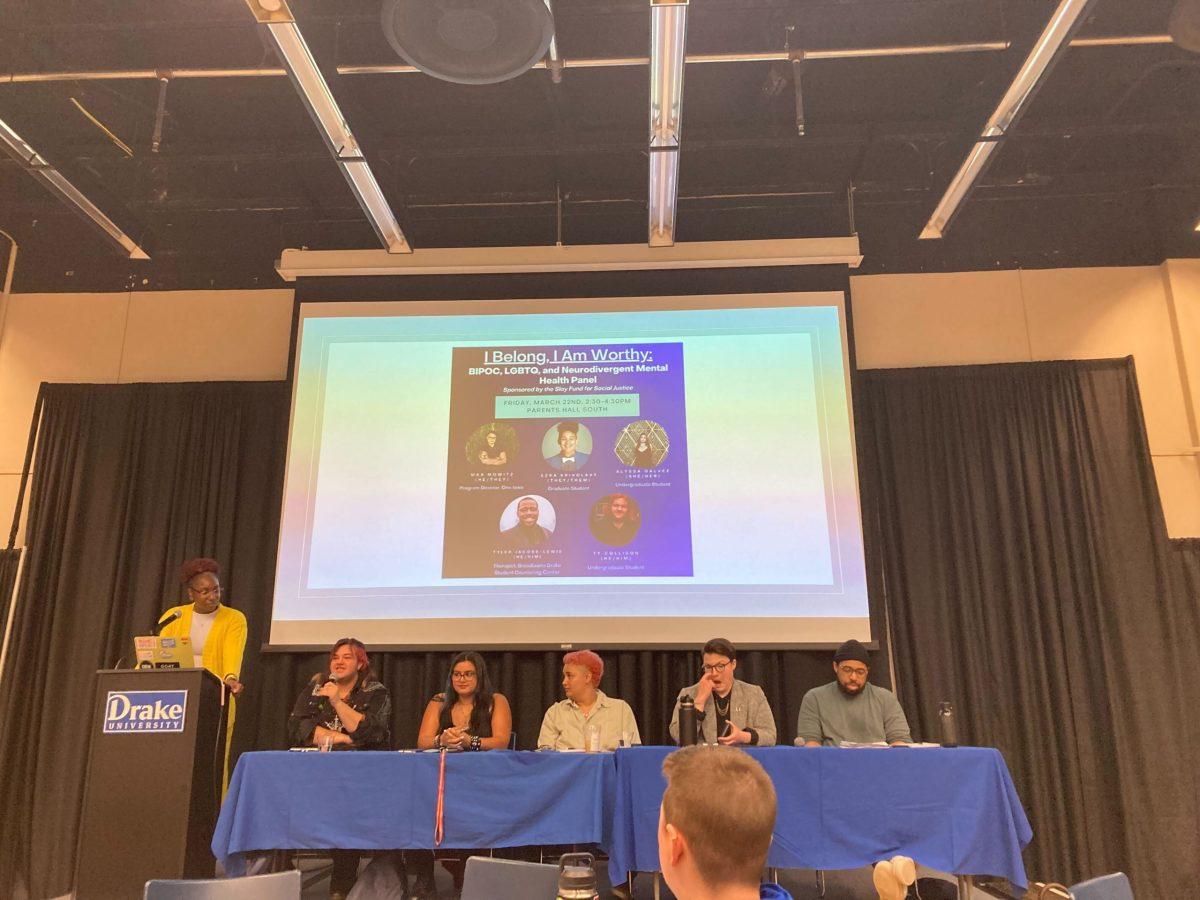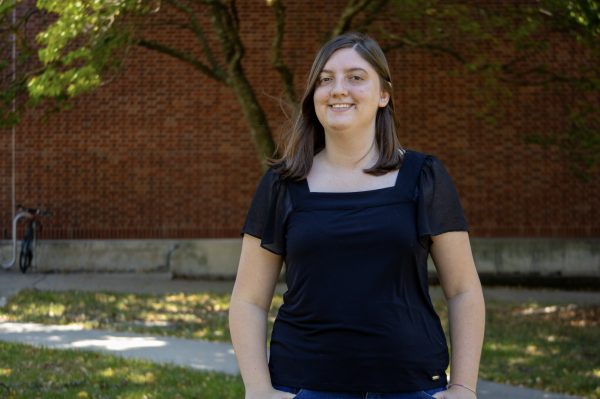Intersectionality, a way of understanding society, says that a person is not one identity but multiple, all of which deeply impact their life experiences. These intersecting identities also impact how existing systems discriminate against a person.
On March 22, the Drake Counseling Center and Office of Diversity, Equity and Inclusion hosted the “I Belong, I Am Worthy: BIPOC, Neurodivergent, and LGBTQ+ Mental Health Panel Event,” sponsored by the Slay Fund.
Guests received care bags and a workbook about meaning and belonging in communities. Guests also had a chance to enter a raffle to win self-care products.
Kayla Bell, director of the Counseling Center, said that while this is the third panel since 2021, the first two were only focused on BIPOC communities. After hearing the stories of many different students, Bell decided to expand what the panel covered.
“There were so many students coming with multiple identities and feeling similar themes like, ‘they’re not worthy,’ like ‘they don’t belong,’” Bell said.
Bell worked with the Office of Diversity, Equity and Inclusion to find representatives with experiences related to intersectionality, seeking a variety of education experiences and relationships to Drake.
The panel members included undergraduates Ty Cullison and Alyssa Galvez, graduate student Ezra Krivolavy, Broadlawns therapist Tyler Jacobs-Lewis and director of LGBTQ+ advocacy organization One Iowa Max Mowitz.
Cullison, a first-year majoring in painting, heard about the panel in the winter and decided to be part of it to share his experiences with intersectionality.
“It seemed extremely interesting and a great thing to have at this school,” Cullison said. “I’ve been to many environments in my life where people like me are not considered, so seeing something like this be viewed with respect and [a want] to hear people’s voices was a really important feeling to me.”
Galvez, a sophomore studying data analytics, saw the panel as an opportunity to talk about things she is passionate about, especially obsessive-compulsive disorder and attention deficit hyperactivity disorder, which she has.
“People need to know the facts,” Galvez said. “I’m very harsh, I’m very blunt and I really want to [share facts] because a lot of time people tend to self-diagnose because of stereotypes. I’m here to be like, ‘No, that’s not what that is,’ and I want to put my face out there to be like, ‘I struggle.’ I want people [with mental illnesses] to know they’re not alone because they struggle with certain things.”
She hopes the panel will bring people more understanding of intersectionality and how that impacts experiences.
“A lot of these topics are talked about individually but not all at once,” Galvez said.
During the event, which Bell moderated, the panelists discussed the importance of assessing intersectionality, how institutions can better support marginalized people through challenges and create belonging environments and what encouragement they would give to other marginalized people. Panelists also shared experiences where they saw themselves being rejected or misunderstood and where people celebrated their intersecting identities.
“I feel like [intersectionality] is extremely important to take into consideration because the majority of people who [face] discrimination throughout their life do not just hold one identity that impacts their experiences, or how they perceive their life impacts how others perceive them as well,” Cullison said.
After answering Bell’s questions, Bell opened the floor to questions.
Sophomore Marra Catherine Schindler is a member of Crew Scholars and came to the event to support the Crew members on the panel. From the panel, Schindler took away the importance of concrete action.
“It goes deeper than the bare minimum. It’s more than pronouns, more than showing up. Now that you’ve done the education, what do you do moving forward?” Schindler said. “Living authentically, living through those values and morals of making [marginalized people] feel included, making people feel safe is all that’s needed for people to do.”
Bell, who plans to host this panel every year, said she was honored to be in a position where she could lift voices like the ones on the panel.
“I hope students take away the importance of building community, whether that’s one-to-one letting someone know they’re valued, but also empathy — that when people share their experiences that we can listen in,” Bell said. “[I also hope] that students who identify with these communities know that they’re important, that they’re worthy, regardless of what anyone said.








